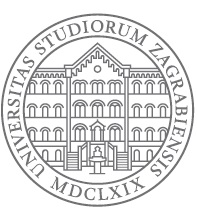Title Skrb o bolesniku sa šećernom bolesti Title (english) Care for patient with diabetes Author Ilija Jurić Mentor Biserka Bergman-Marković (mentor)Committee member Milica Katić (predsjednik povjerenstva)Committee member Venija Cerovečki Nekić (član povjerenstva)Committee member Biserka Bergman-Marković (član povjerenstva)Granter University of Zagreb Defense date and country 2016-07-15, Croatia Scientific / art field, BIOMEDICINE AND HEALTHCARE Abstract Šećerna bolest (ŠB) je metabolički poremećaj karakteriziran povišenom razinom šećera u krvi. Postoji više vrsta ŠB ovisno o uzroku, ali 90-95% bolesnika čine pacijenti s ŠB tipom 2. Kako je incidencija ŠB u zadnjih dvadesetak godina u izrazitom porastu, ŠB postaje javnozdravstveni problem. Predviđa se da će porast broja oboljelih u razdoblju od 2010. do 2030. godine iznositi 54% na svjetskoj razini, odnosno da će broj oboljelih s 284,6 milijuna porasti na 438,4 milijuna. Republika Hrvatska nije iznimka. Prema podacima CroDiab registra 2014. godine bilo je 254.296 odraslih osoba oboljelih od ŠB. Uz to što je incidencija u porastu, problem vezan uz ŠB je i cijena liječenja. Zdravstvena skrb za bolesnika sa ŠB je pet puta skuplja od skrbi za prosječnog bolesnika u populaciji. CODE-2 studija ukazala je da se otprilike 75% troškova za liječenje ŠB odnosi na troškove liječenja kroničnih komplikacija dok najmanji udio u troškovima otpada na lijekove za liječenje ŠB. Također, zabrinjava i činjenica da osobe sa ŠB umiru 5 do 10 godina ranije od svojih vršnjaka bez ŠB, ponajviše od kardiovaskularnih bolesti koje su zapravo komplikacija osnovne bolesti. Imajući ove činjenice na umu jasno je da je prijeko potrebno otkriti bolest u asimptomatskoj fazi, kako zbog zdravstvenog, tako i zbog socijalnog i ekonomskog opterećenja sustava. Šećerna bolest je utoliko specifična jer pacijent svojim ponašanjem i životnim navikama može poboljšati, ali i pogoršati bolest. Potrebno je kontinuirano educirati i motivirati, kako pacijenta, tako i njegovu obitelj i okolinu jer je izrazito teško postići regulaciju glikemije lijekovima ako se pacijent ne pridržava mjera zdravog življenja. Važnu ulogu u cijelom tom procesu ima liječnik obiteljske medicine (LOM). On je glavni koordinator skrbi za pacijenta sa ŠB budući da je potrebno usklađivanje mnogih djelatnika u zdravstvenom sustavu kako bi se pružila adekvatna pomoć pacijentu.
Abstract (english) Diabetes mellitus (DM) is a metabolic disorder characterized by an increased sugar level in the blood, also known as hyperglycemia. There are many types of DM dependent on it's cause, however 90-95% of sufferers are patients with type 2 DM. Due to the drastic increase in DM incidence within the last twenty years, DM is becoming a severe public health problem. It is being foreseen that the number of people suffering from the disease will within the period of 2010 to 2030 reach 54% on the world scale, meaning that the number of sufferers from the disease will increase from 284,6 million to 438,4 million. No exception is the Republic of Croatia. According to the facts from the CroDiab registry, in 2014 there were 254,296 adults suffering from DM. As the incidence of DM is rising, the upcoming problem related to DM, is the price of treatment. Healthcare for patients with DM is five times more expensive than healthcare for the average patient in a population. The CODE-2 study showed that around 75% of costs for treating DM are compounded on costs for treating chronic complications while the smaller portion of these costs are made up of drugs used to treat DM. Highly worrying is the fact that patients with DM pass away 5 to 10 years earlier than their peers without DM, commonly due to cardiovascular diseases which are generally complications of the disease. Having these facts in mind, it is clear that it is highly necessary to diagnose the disease in its asymptomatic phase, for health, social and economic reasons. Diabetes Mellitus is specific due to the fact that a patient can either ameliorate or worsen their disease through their actions and lifestyle. It is necessary to continually educate and motivate patients, their families and the community as it is extremely difficult to regulate glycemic levels with drugs if the patient doesn't follow healthy lifestyle protocols. An important role in this whole process is that of the family doctor. They are the main health coordinators for patients with DM as the coordination of many health professionals is required to help and treat these patients adequately.
Keywords
šećerna bolest
kontinuirana skrb
javnozdravstveni problem
Keywords (english)
diabetes mellitus
continued care
public health problem
Language croatian URN:NBN urn:nbn:hr:105:617319 Study programme Title: Medicine Type of resource Text File origin Born digital Access conditions Open access Terms of use Repository Dr Med - University of Zagreb School of Medicine Digital Repository Created on 2017-08-18 10:40:14


